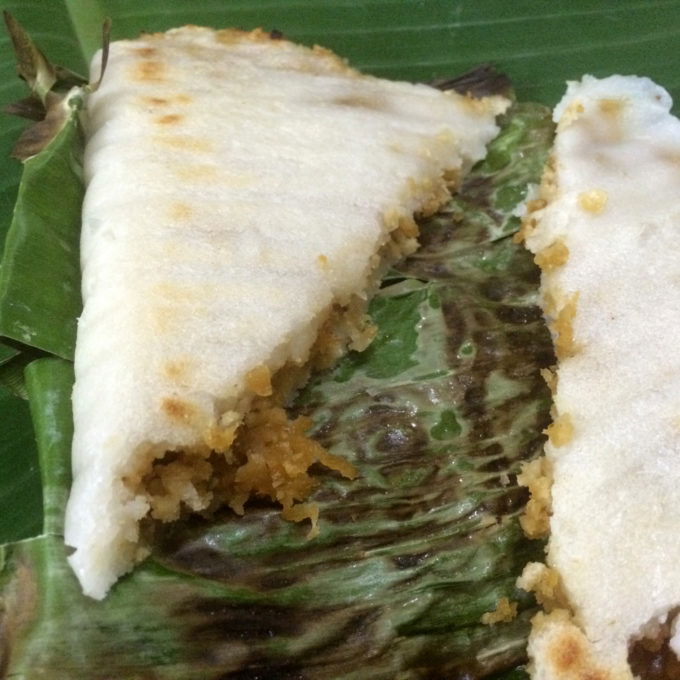
The Benefits of Plantain Leaves 101

The Benefits of Plantain Leaves 101
Adda in Kerala
There’s something uncanny about the history my family shares with plantains. Green leaves freshly cut from a thick stalk in the mornings is a memory that surfaces often; that and the smell of grated coconut, the waft of black ginger tea, and a vision of ammachi’s (my grandmother’s) kitchen.
Adda is a traditional dish cooked in the southern state of Kerala, India. It is also one of which my family is particularly fond. Thick rice batter, flattened onto a banana leaf and stuffed with a handful of sweetened, grated coconut was ammachi’s staple every time we met her for breakfast.
Being part of a Syrian-Catholic household, every Sunday had a routine. First there was the morning mass at church. Next stop was her kitchen, made of brick walls and a thatched roof. Ammachi would make her appearance exactly five minutes after we did, the amount of time she needed to change from her Sunday outfit and remove her jewelry.
Right after she walked in, it was time to take count. “Two,” she’d say pointing at herself. “Four,” pointing at mom. “Seven,” pointing at my aunt. And on and on, she would do the sum in her mind, meticulously counting the number of adda’s that each person was likely to eat, and invariably the number of leaf packets she’d need to cook the adda in. Once she was done running the numbers, she would take her huge knife and walk out the backdoor to cut leaves from her carefully tended plantains. It was a task she didn’t trust anyone with.
“You will end up tearing the leaves,” she chided anyone who made the grave mistake of thinking they could be of help.
The women of the family would then gather around the kitchen counter and join the matriarch as she prepped for breakfast. The leaf packets were steamed for roughly seven minutes. The sweet aroma of coconut would hit the bridge of our noses by the fourth minute. By the fifth, we had already grabbed our plates and huddled over the old wooden table, with one creaky, broken leg. Soon, the chatter of my aunts pulling out hot addas and placing new ones in the steamer would fill the kitchen.
Tea was prepared twice, always. One round brewed for as soon as the men in the family woke up and another one to accompany breakfast. If it was adda, milk was put on the stove for a third round. It somehow made sense to have a hot beverage with which to drown each mouthful.
For a few of my cousins who disliked the routine, ammachi would unflinchingly deliver an interrupted session of ‘the benefits of plantain leaves – 101’ between flattening the dough and wagging a finger at them. It’s a tradition that I often think of, especially now that ammachi can no longer cook. The old kitchen is now replaced with a new, modular one. The creaky table is long gone. The plantains have slowly withered and died.
“Perhaps it’s time to start the routine all over again,” my mother said to ammachi, as we fed her breakfast one Sunday morning, after mass. Her eyes crinkled. She smiled a wide, toothless smile.